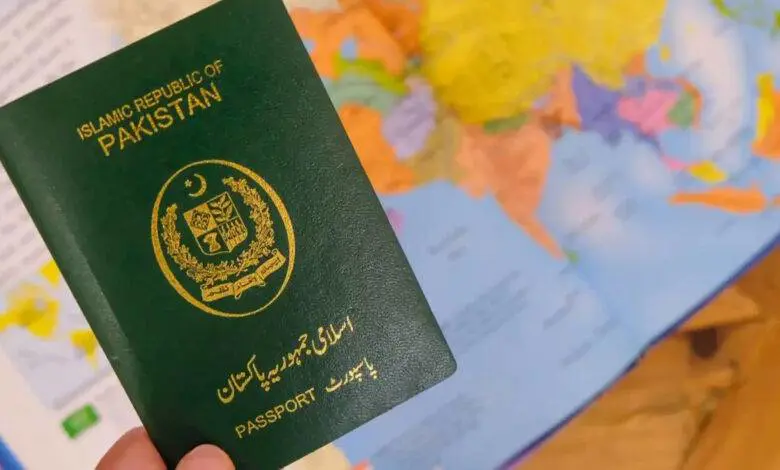
The People's Republic of China has made a significant announcement on the global stage, confirming the extension of its unilateral visa-free policy for citizens of France and a vast cohort of other countries. This pivotal measure, originally set to expire soon, has now been extended until December 31, 2026. This decision by China underscores its commitment to fostering international exchange, promoting tourism, and enhancing global economic connectivity, marking a new chapter in the country's high-standard opening-up strategy. The move, extending the visa-free policy, affects over 40 nations, including key economies and partners, further cementing China's role as an accessible and welcoming destination.
I. The Core Policy Extension: Unpacking the Visa-Free Policy
The heart of the announcement is the extension of the existing unilateral visa-free policy. This policy allows ordinary passport holders from designated countries to enter China for short-term stays—typically up to 30 days—without the need for a prior visa application.
A. Rationale Behind the Extension Until December 31, 2026
The decision to extend the visa-free policy until December 31, 2026, is not arbitrary. It is a strategic move by the Chinese government, aimed at several critical objectives:
Promoting Tourism and Business: The primary goal is to significantly boost inbound tourism and facilitate cross-border business activities. By removing the bureaucratic hurdle of obtaining a visa, China makes itself a more attractive destination for short visits. The simplified process is expected to encourage more international travelers and business professionals from France and other countries to visit.
Expanding High-Level Opening-Up: The extension is a tangible demonstration of China's commitment to an "all-round, high-standard opening-up." It signals to the world that China is actively seeking deeper integration and cooperation, especially with countries covered by the visa-free policy.
Revitalizing Post-Pandemic Exchange: Following years of restricted global travel, the visa-free policy extension is a powerful tool to rapidly restore and exceed pre-pandemic levels of international exchange. It streamlines entry, thus benefiting people-to-people exchanges and strengthening cultural ties with France and other countries.
B. Key Provisions of the Extended Visa-Free Policy
The visa-free policy for France and the other countries maintains its essential conditions:
Maximum Stay: Visitors can stay in China for a maximum of 30 days per entry. This duration is perfectly suited for tourism, short business trips, family visits, or transit.
Applicable Purposes: The exemption applies specifically to ordinary passport holders traveling for:
Tourism
Business activities
Family or friend visits
Exchange programs
Transit purposes
Excluded Purposes: The visa-free policy generally does not cover travel for work or study, for which a standard visa application remains necessary.
Effective Date of Extension: The extension ensures the policy remains in effect through the entirety of December 31, 2026.
This extension for France and the other countries is designed to maximize ease of entry, encouraging a high volume of short-term stays in China.
II. France and Other Countries: Beneficiaries of the Extension
The extension of the visa-free policy covers a broad and strategically important group of countries. The sheer number of beneficiary nations highlights the expansive nature of China's opening-up initiative.
A. France Leading the Charge for European Countries
France is consistently highlighted in the announcement, underscoring its importance to China. As a major European economy and a strong partner, the inclusion of France in the extension until December 31, 2026, is critical for enhancing bilateral ties and cultural exchange.
The visa-free policy for France facilitates not only tourism from one of the world's most travel-savvy nations but also supports crucial business links between French companies and the Chinese market.
The continued visa-free access for France serves as a strong signal of commitment to European relations, alongside other key European nations.
B. The Extensive List of Other Countries
The visa-free policy is a unilateral measure from China, impacting a large number of global partners. While the exact list has varied slightly in past announcements, the core group covered by this extension generally includes a significant contingent of European nations, as well as countries from other continents. The total number of countries benefiting from this specific unilateral visa-free policy extension is reportedly over 40.
Examples of Countries Benefiting from the Visa-Free Policy Extension:
| Region | Example Countries (Not Exhaustive) | Stay Duration | Extension Expiry |
|---|---|---|---|
| Europe | France, Germany, Italy, Netherlands, Spain, Switzerland, Ireland, Hungary, Austria, Belgium, Luxembourg, Greece, Portugal, Poland, Sweden (newly added) | Up to 30 days | December 31, 2026 |
| Asia-Pacific | Malaysia, New Zealand, Australia, Japan, South Korea | Up to 30 days | December 31, 2026 |
| Others | Brazil, Argentina, Chile, Uruguay, Gulf Countries (e.g., UAE, Qatar) | Up to 30 days | December 31, 2026 |
The late inclusion of a country like Sweden further demonstrates China's dynamic approach to expanding the visa-free policy and increasing the number of eligible countries. The extension to December 31, 2026, ensures that citizens from all these other countries can also enjoy the seamless travel experience.
III. Economic Impact and Future Outlook of the Visa-Free Policy
The extension of the visa-free policy is expected to generate significant economic benefits for China, stemming from increased inbound travel from France and other countries.
A. Metrics and Success of the Initial Policy Phase
The initial phases of the visa-free policy have already demonstrated its success, providing the empirical foundation for the current extension.
Surge in Arrivals: Official data from China’s National Immigration Administration has shown a notable surge in foreign arrivals under the visa-free policy.
Dominant Entry Method: Visa-free entries have accounted for a substantial majority (often over 70%) of all foreign arrivals during the policy's trial period, underscoring the policy's importance in boosting international mobility from France and other countries.
Economic Contribution: The influx of tourists and business visitors directly contributes to China's hospitality, retail, and service sectors, driving economic recovery and growth. This is a core reason for the extension until December 31, 2026.
B. Facilitating Business and Tourism from France and Beyond
The visa-free policy extension is a boon for both business and tourism. The ease of entry for citizens of France and the other countries makes planning quick trips significantly simpler.
Benefits for Business Professionals from Countries Covered by the Extension:
Rapid Response: Business travelers can respond swiftly to market demands or unexpected meetings in China without the delay of a visa application.
Reduced Overhead: Companies from France and the other countries save time and money previously spent on processing visa applications for their short-term trips.
Enhanced Connectivity: Facilitates crucial face-to-face exchanges, which are often essential for high-level business negotiations and deal-making in China.
Benefits for Tourists from Countries Covered by the Extension:
Spontaneity: Encourages spontaneous or last-minute trips, appealing to travelers from France and other Western nations known for short-break travel.
Cost Savings: Eliminates the often considerable cost of a single or multiple-entry tourist visa.
Focus on Experience: Allows travelers from France and other countries to focus their planning and budget on their experience in China, not on the paperwork.
The extension of the visa-free policy to December 31, 2026, for France and other countries is a clear strategic decision to ensure these benefits continue for an extended period, cementing China's status as a globally connected economic powerhouse. The repetitive use of the core phrase, "China extends visa-free policy for France and other countries until December 31, 2026," highlights the central importance and definitive nature of this landmark announcement, ensuring maximum clarity and impact across all relevant sectors. The policy aims to make China even more attractive for tourism and business for the citizens of France and all the other countries on the beneficiary list.
IV. Logistical Improvements: Beyond the Visa-Free Policy Extension
In tandem with the extension of the visa-free policy for France and other countries, China has also introduced other measures to further smooth the entry process and make the experience of visiting China more seamless until December 31, 2026, and beyond.
Digital Entry Cards: Introduction of the option for foreign travelers to complete their entry cards online before arrival, complementing the already simplified entry for France and other countries under the visa-free policy.
Expanded Transit Program: Expansion of the 240-hour visa-free transit program to additional ports, increasing the ease of transit through China for travelers from an even wider list of countries.
Enhanced Port Infrastructure: Continuous efforts to upgrade and digitize customs and immigration processes at major ports of entry across China, benefiting the growing number of visitors from France and the other countries utilizing the visa-free policy extension.
V. Conclusion: A Commitment to Openness Until December 31, 2026
The decisive announcement by China to extend the unilateral visa-free policy for France and other countries until December 31, 2026, is a clear and powerful signal of its dedication to global engagement. This extension is fundamentally about facilitating movement, strengthening economic ties, and promoting cultural understanding. The policy's proven success in boosting tourism and business activities has justified its continuation, ensuring that citizens from France and the other countries on the list can look forward to seamless, visa-free travel for years to come. The goal is clear: a more open, accessible, and connected China for the world until December 31, 2026, and likely beyond.
More Travel News
-
 25-Mar-2020Noor-ul-Haq Qadri Reject all Rumors about Hajj 2020
25-Mar-2020Noor-ul-Haq Qadri Reject all Rumors about Hajj 2020 -
 15-Jan-2026Ziyarat Places Added to Umrah Packages 2026
15-Jan-2026Ziyarat Places Added to Umrah Packages 2026 -
 27-Feb-2020Due to Coronavirus Saudi Govt Banned Umrah Temporarily
27-Feb-2020Due to Coronavirus Saudi Govt Banned Umrah Temporarily -
 19-Jan-2025PIA Investigates After Flight Lands on Incorrect Runway
19-Jan-2025PIA Investigates After Flight Lands on Incorrect Runway -
 26-May-2025Pakistan Government to Cancel Passports, File Cases Against Deported Individuals
26-May-2025Pakistan Government to Cancel Passports, File Cases Against Deported Individuals -
 04-Jun-2020Despite Increasing Coronavirus Cases, PM Wants Tourism
04-Jun-2020Despite Increasing Coronavirus Cases, PM Wants Tourism -
 08-Jan-2025Will Saudi Airline Fly A Deal's Arrival In Pakistan Make Tickets Cheaper?
08-Jan-2025Will Saudi Airline Fly A Deal's Arrival In Pakistan Make Tickets Cheaper? -
 16-Apr-2025Accommodation rules updated for Hajj 2025 pilgrims, says Saudi Arabia.
16-Apr-2025Accommodation rules updated for Hajj 2025 pilgrims, says Saudi Arabia. -
 04-Aug-2025Visa Rejection Rates Rise – What Pakistani Travelers Should Avoid
04-Aug-2025Visa Rejection Rates Rise – What Pakistani Travelers Should Avoid -
 25-Apr-2022Umrah Last Date from Pakistan
25-Apr-2022Umrah Last Date from Pakistan -
 07-Jan-2021Hajj Ministry launches new smart cards for Pilgrims
07-Jan-2021Hajj Ministry launches new smart cards for Pilgrims -
 03-Oct-2025The New Era of Umrah Pilgrimage: Stricter Rules and the End of Tourist Visa Reliance
03-Oct-2025The New Era of Umrah Pilgrimage: Stricter Rules and the End of Tourist Visa Reliance
